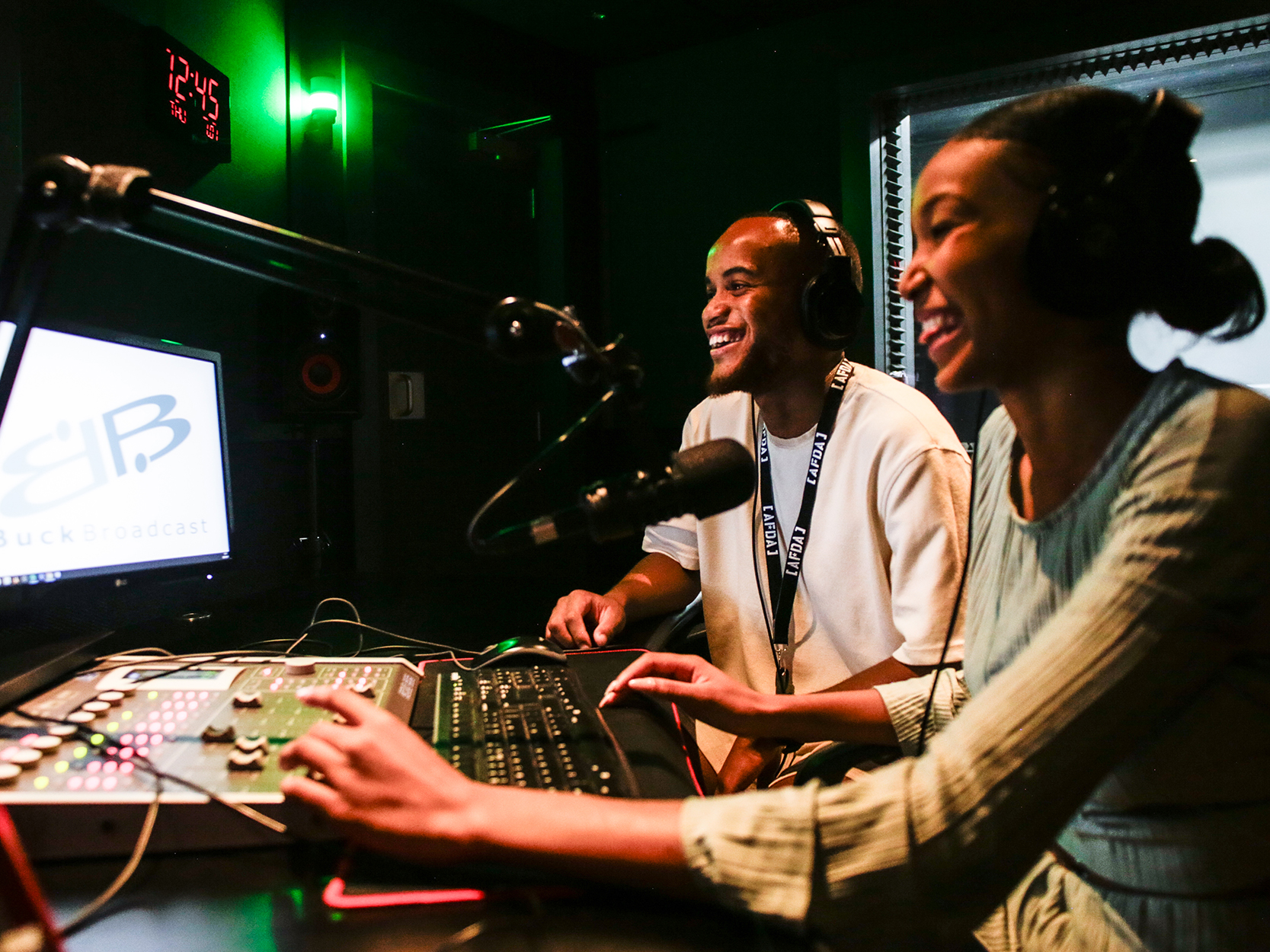Over the four terms of this 1-year Higher Certificate programme, students are introduced to different aspects of industry relevant skills training in the Radio and Podcasting field. Sound studio competency, media literacy and correct interpretation and development of a brief, script and/or concept is addressed, along with industry expectations, communication skills and a focus on teamwork. The Higher Certificate student also emerges with a strong academic and attitudinal foundation in preparation for further education at AFDA.
Radio and Podcasting students can be placed in an internship at some point during the four term programme. This internship opportunity could include assisting at a Radio station, assisting with professional podcasting and sound studio recordings, or assisting with recording voice overs at a post-production facility.
The Modules:
Introduction to radio:
This module introduces the students to the sound recording studio. There is a particular emphasis on sound studio competency and an introduction to radio genres and formats.
Applying equipment competency in recording – Part 1
This module trains and guides the studio-competent student in successfully recording both a podcast and a voice over. Skills training in editing audio is also applied. Throughout the year, the students will continuously be challenged to apply the competency received in the preceding modules. The students in the Higher Certificate programme will also interact with the AFDA School of Live Performance in shared, industry relevant outcomes.
Applying equipment competency in recording – Part 2
The second part of this module trains and guides the equipment competent student in successfully recording a live radio show and a radio advertisement. The student also receives training in audience research techniques; as well as receiving an introduction to legislative frameworks and media ethics.
Advanced recording competency and industry readiness
This prepares the student in developing podcast concepts and recording of their own radio demos. They will create their own CVs for industry. There is an emphasis on conceptual training and preparation for the radio and podcasting industry, and further interaction with the AFDA Live Performance school in recording of a radio drama, timetable permitting.

